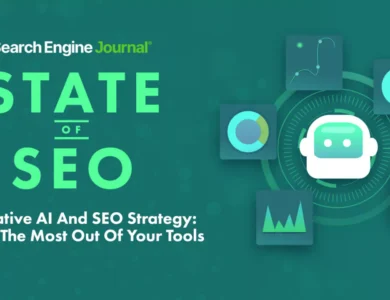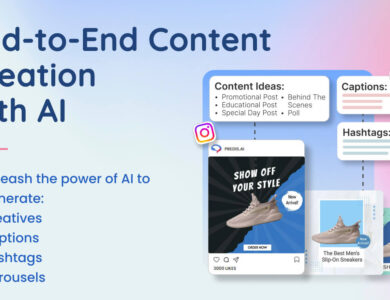What is Entity SEO? A Complete Guide for Beginners

In the ever-evolving world of digital marketing, SEO (Search Engine Optimization) continues to advance rapidly. One of the most significant shifts in recent years is the growing importance of Entity SEO. Unlike traditional keyword-based SEO, Entity SEO is smarter, more contextual, and aligned with how modern search engines, especially Google, understand content.
So, what is Entity SEO, and why should you care about it?
Let’s break it down in a simple, beginner-friendly way.
🔍 What is an “Entity” in SEO?
In SEO terms, an entity is any unique, well-defined, and distinguishable thing or concept. This could be a person, place, organization, product, event, or even an abstract idea.
For example:
- “Elon Musk” is a person (entity).
- “Sydney Opera House” is a place (entity).
- “Tesla” is a company (entity).
- “Artificial Intelligence” is a concept (entity).
What makes these entities different from keywords is that they have context, relationships, and meaning beyond just the words themselves. Search engines can recognize them independently of the exact phrase used.
🧠 How Search Engines Use Entities
Google introduced the Knowledge Graph in 2012, a huge step toward understanding the relationships between entities. Rather than simply matching keywords, Google now aims to understand the meaning behind the content.
When you search for “Steve Jobs,” Google doesn’t just find pages with that name it brings up relevant info like:
- Who he was
- What he did (Co-founder of Apple)
- Related people (Tim Cook, Steve Wozniak)
- Important dates (his birth and death)
- Companies (Apple, Pixar)
That’s the power of entity-based search it focuses on context, not just content.
💡 What is Entity SEO?
Entity SEO is the practice of optimizing your website and content in a way that highlights entities and their relationships, so that search engines can better understand, categorize, and rank your pages.
Instead of focusing only on keyword density or exact-match phrases, Entity SEO focuses on:
- Using structured data
- Establishing topical authority
- Connecting related entities
- Writing content that aligns with how search engines interpret meaning
🛠 Key Elements of Entity SEO
- Structured Data (Schema Markup)
Use Schema.org markup to tag your content with meaningful labels (e.g., product, person, event). This helps search engines “see” what each part of your page is about.
Example:
<script type=”application/ld+json”>
{
“@context”: “https://schema.org”,
“@type”: “Organization”,
“name”: “GlobalGenie”,
“url”: “https://www.globalgenie.com.au”,
“sameAs”: [
“https://www.facebook.com/globalgenie”,
“https://www.linkedin.com/company/globalgenie”
]
}
</script>
- Contextual Relevance
Instead of just targeting a keyword like “best SEO company in Australia,” you build a whole page that also includes related entities such as:
- Local cities (e.g., Sydney, Melbourne)
- Services (e.g., link building, content strategy)
- Industry terms (e.g., digital marketing, local SEO)
- Interlinking Related Topics
Use internal linking to create semantic relationships between your pages. For example, a blog on “Technical SEO” should link to other relevant pages like “Crawling and Indexing” or “Website Architecture”.
- Building Topical Authority
Publishing multiple pieces of content on a topic area (called content clusters) signals to Google that you’re an authority on that subject.
Example:
- Core page: “Local SEO Services in Australia”
- Supporting blogs: “Google My Business Optimization,” “NAP Consistency Tips,” etc.
📈 Why Entity SEO Matters for Your Website
Here’s why Entity SEO is a game-changer:
- ✅ Improved Rankings: When Google understands your content better, it ranks it higher.
- ✅ Featured Snippets & Knowledge Panels: Entities help your site appear in rich results.
- ✅ Voice Search Optimization: Entity SEO is essential for answering voice search queries.
- ✅ Future-Proofing Your SEO: As algorithms evolve, entity-based optimization will dominate.
🧩 Entity SEO vs. Traditional SEO: What’s the Difference?
| Aspect | Traditional SEO | Entity SEO |
|---|---|---|
| Focus | Keywords | Entities & Concepts |
| Ranking Signal | Keyword Usage | Context & Relationships |
| Optimization | On-page, meta tags, backlinks | Structured data, semantic relevance, relationships |
| Search Result | Blue links | Featured snippets, knowledge panels, rich results |
✅ How to Start with Entity SEO: Step-by-Step
- Identify Key Entities: Find the main topics and subtopics related to your business or content.
- Add Schema Markup: Use tools like Google’s Structured Data Markup Helper to implement schema.
- Create Rich, Contextual Content: Answer questions, use synonyms, and include related topics.
- Use Internal Linking Strategically: Link to related content to build semantic connections.
- Leverage Authoritative Sources: Link out to or mention reputable websites and sources when relevant.
- Get Listed in Trusted Databases: Wikipedia, Wikidata, Google Business Profile, and industry directories can help define your business as an entity.
📌 Final Thoughts
Entity SEO isn’t just a trend it’s the future of how search engines understand and deliver relevant information. By focusing on concepts, relationships, and semantic meaning, you can help your content stand out in today’s competitive search landscape.
Whether you’re a blogger, digital marketer, or business owner in Australia, adopting Entity SEO strategies can elevate your visibility, improve search rankings, and future-proof your SEO efforts.
Need help implementing Entity SEO for your website?
Reach out to GlobalGenie.com.au — one of Australia’s trusted names in SEO and digital transformation.














